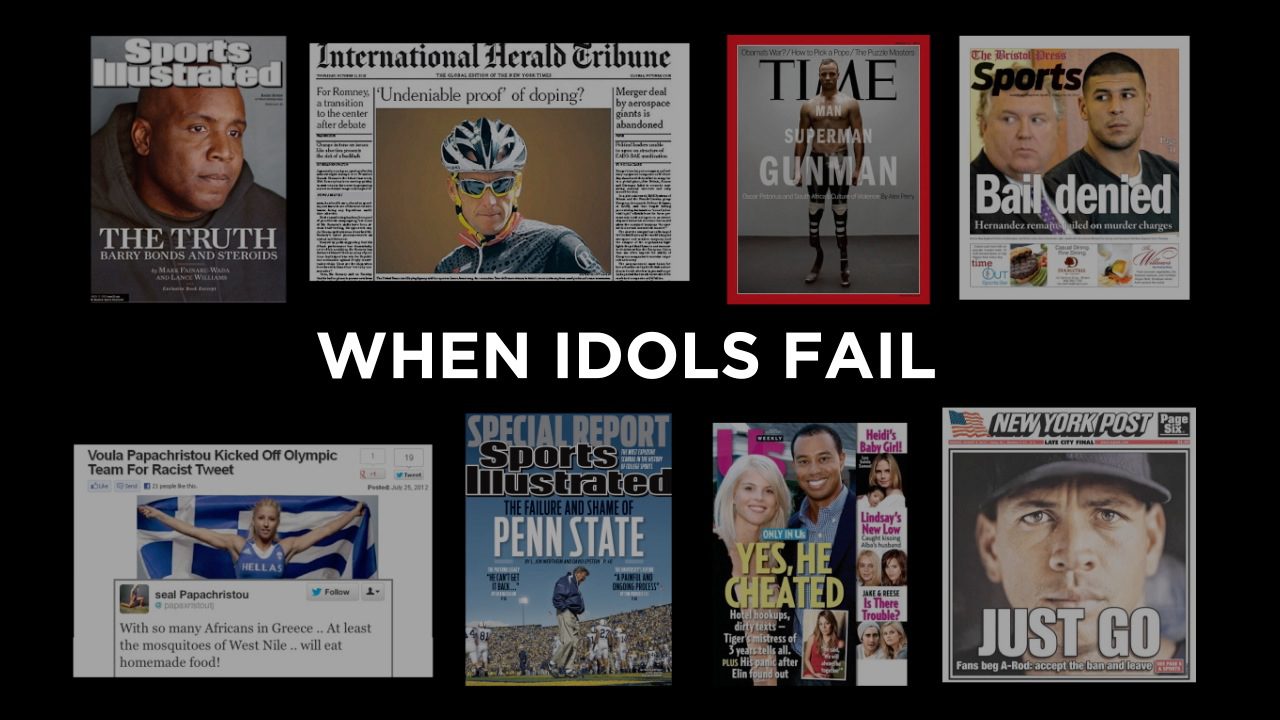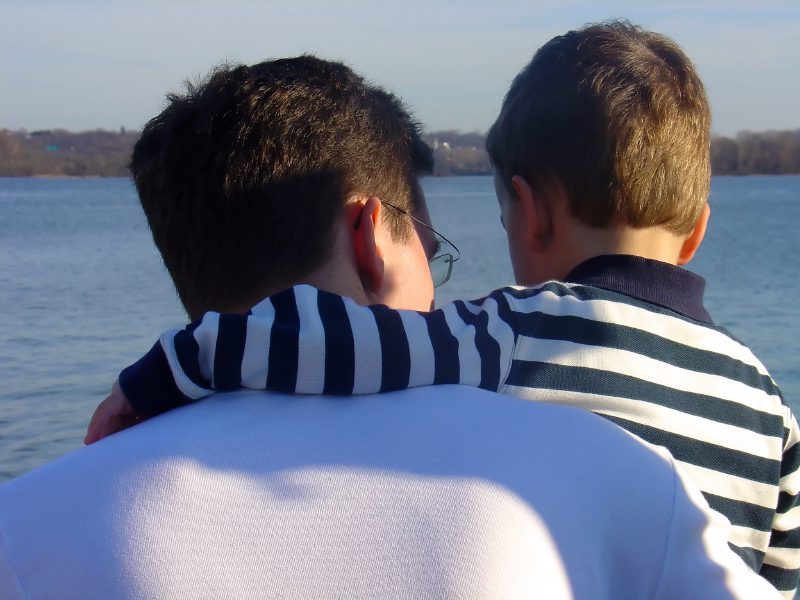When Young People Lose a Hero to a Tragic Death

Posted in: Grade School, Hot Topics, Parenting Concerns, Teenagers, You & Your Family, Young Adults
Topics: Child + Adolescent Development, Hot Topics
Most of us, young and old, were stunned by the tragic death of Kobe Bryant along with his daughter. Whether you are a Laker’s fan or not, Kobe represented something more, including for young people.
Tom Brady said it this way in a Twitter statement:
“And in this tragedy, I have learned so much. Why has this touched me in the way that it did? Why has it kept me up at night, and brought me so many tears?
In Kobe we were able to witness the man in the arena…. Kobe didn’t care whether you were a man or woman, boy or girl, black or white, rich or poor, ordinary or extraordinary, he wanted to help you become the best you could be. His mere presence had an effect on everybody he was around. He had the energy to recognize in others what they could not recognize in themselves.
I think that’s why I will miss him most. Because we all know the world needs more of that leadership and positivity …. That’s what made Kobe a real super-hero….”
Why is it so important for young people to have these kinds of heroes? And what happens in the event that they suddenly lose them?
The Meaning and Importance of Heroes
Heroes play an important role in the life of a young person, and much the same for adults. Here are some of the ways they influence us as role models:
- Identification. Young people identify with their heroes and often live vicariously through them. They dress like them, talk the same talk, or attempt similar creative or athletic pursuits. They also identify with their physical beauty and image.
- Adoption of Values. Heroes embody the attitudes and ideals youth try to emulate. They appreciate them through their words, deeds, lyrics, and behavior toward others. This can go in both positive and negative directions. For example, one kid may join in community service or in devotion to family, as Kobe did off the court; another kid might play the tough and rough ice hockey favorite who is always ready for a fight.
- Inspiration. Celebrities have skills many kids dream of replicating – playing an instrument, singing, or dazzling us with dance or athletic moves. They also inspire us through their activism. Witness Brad Pitt’s devotion to rebuilding sections of New Orleans after Katrina, or David Hogg’s leadership of #NeverAgain after the Parkland shooting.
- Creativity. A hallmark of a hero is the ability to craft something new and innovative, whether it be in music, film, dance, theater, comedy, literature, athletics, or politics. There’s something incredibly compelling about standing apart from all others with one’s originality.
- Leadership. Most role models are in some way at the head of their pack. Their place in the world is viewed, correctly or not, as someone who is powerful and in charge. But being a leader also means setting standards for achievement, acceptance of others, mentorship, and serving as an example. Leadership implies acting according to clear and strong values. Let’s take another example in basketball. In the short film “The Last Pick,” NBA player Jeremy Lin mentors a boy who is rejected by older kids on the court. During their practice session, Jeremy refuses to let him quit and reminds him that he’s getting better. Later, when Jeremy joins the older kids for a basketball game, he picks the boy to be on his team – despite that older kids don’t think he’s a good player. The lesson here is the leadership shown in helping a teammate. What’s most important in the game is knowing that morale, effort, and unity are more important than perfection. In a game, mistakes happen – we know that. But more, we know that leaders need to maintain the spirit and unity of the team.
- Popularity. Kids see celebrities as incredibly popular. Everyone likes them, wants to meet them, be close with them, and hang out with them – at least that’s the image. This, of course, may not be true in reality. Many celebrities are deeply insecure, vulnerable and self-conscious. But our view of heroes is not necessarily about reality. Rather, it’s all about perception.
- Strength and Invincibility. There’s something about celebrities that leads us to see them as immortal. Even if we know that they have challenges with substance use disorders, mental illness, or unstable relationships, it’s not part of our concept of them. They appear bigger than life, perhaps even indestructible. We see them as capable of taking on any challenge.
Heroes today are likely even more powerful and influential than ever before, thanks to the pervasive role of digital media. Young people follow celebrities through Instagram stories, Twitter, and a wide range of other social media, not to mention online websites and TV celebrity news. With daily notifications, updates, and posts, they may feel closer to them and their personal lives than ever before. Heroes become “personal friends” even though our interaction with them is not reciprocated. They are integrated into the fabric of our daily lives.
The Loss of a Hero
We’ve all lost our celebrity role models at one time or another. Sometimes we just grow out of them, or we shift from one to another as our tastes and interests change.
In some cases, we lose a hero due to a serious transgression. A good example is Kevin Spacey. Or more recently, consider the allegations of abuse by Chris Brown, Justin Bieber, or Johnny Depp. Our heroes who have crossed the line are terribly hard to deal with, in large part, because they are still in the news or on the screen.
Still further is the loss of a hero through tragedy. Let’s look at what helps when we lose a hero to an unexpected sudden death. Here are some things that can help.
- Engage and Communicate With Others. There’s no substitute for sharing your memories and emotions with others, face to face or online. Much like what we do when a friend or relative passes in the days around a funeral, gathering together and swapping stories is healing. This process not only keeps alive the memory of the hero, but it connects us and helps us feel closer with others.
- Use Creative Expression. For ages, people have dealt with loss through the arts. Find your own way of expressing the meaning of your hero by journaling, drawing, painting, crafting a scrap book or collage, or writing a song.
- Make a Contribution In the Name of Your Hero. Memorial fundraisers that support causes championed by a loved one have long been a means of keeping the memory of a hero alive. Beyond financial contributions, you might think of ways to initiate local projects named after your hero or celebrity.
- Take Care of Yourself. Sometimes the death of a hero takes on monumental proportions, not unlike an obsession that interferes with your daily thoughts and feelings. Limit your time dwelling on the life and legacy of your celebrity. If you find yourself preoccupied with the loss, you might need to seek help from a counselor or trusted advisor.
- Celebrate the Achievements of Your Hero. We are all saddened by loss. But our lives need to go on despite the tragedy of death. Just as Tom Brady revealed in his beautiful tribute, we do best by focusing on what was left behind – the lessons we have learned and moving beyond our tears.
- Emulate the Attributes of Your Hero. While our celebrity role models are, as noted above, often bigger than life, following their loss, we can try to embrace and promote their values, strength, vitality, and inspiration.
In my own life, I lived through the loss of people idolized. I vividly recall the sudden death of Martin Luther King and John F. Kennedy as a teenager, and more recently, Robin Williams.
In the best case, we go through stages of grief – from shock and denial, to anger and sadness, to acceptance. I hope we can do this together in the wake of our most recent loss, and the loss of all heroes who mean so much to our lives.


 Share
Share Tweet
Tweet





